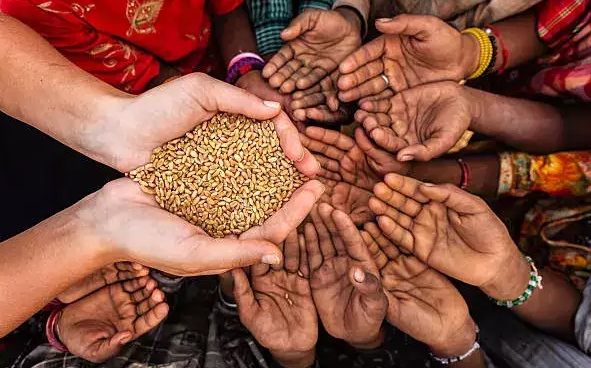A global hunger index report published on its website has ranked Nigeria 109 out of 125 countries as one of the countries with the most hungry population in the world.
According to the report, Nigeria was ranked below countries such as Sudan, Zimbabwe, DR Congo, North Korea and Guinea.
Although the most populous African nation, Nigeria battles with a record high inflation rate of 28.92% and a food inflation rate of 33.93% which is driven by increases in prices of staple food items such as Oil and fat, Meat, Bread and Cereals, Potatoes, Yam & Other Tubers, Fish, and Milk, Cheese, and Eggs.
The report noted that the Global Hunger Index (GHI) serves as a comprehensive tool for measuring and monitoring hunger on a global, regional, and national scale. It encompasses various dimensions of hunger over time, providing a thorough assessment of the issue.
- “The GHI is intended to raise awareness and understanding of the struggle against hunger, provide a way to compare levels of hunger between countries and regions, and call attention to those areas of the world where hunger levels are highest and where the need for additional efforts to eliminate hunger is greatest,” the report noted.
Criteria for Assessment
The report highlights the GHI calculation process, emphasizing that the score for each country is determined by a formula integrating four indicators. This approach aims to encapsulate the diverse facets of hunger comprehensively.
- “Undernourishment: the share of the population whose caloric intake is insufficient;
- “Child stunting: the share of children under the age of five who have low height for their age, reflecting chronic undernutrition;
- “Child wasting: the share of children under the age of five who have low weight for their height, reflecting acute undernutrition; and
- “Child mortality: the share of children who die before their fifth birthday, reflecting in part the fatal mix of inadequate nutrition and unhealthy environments,” the report added.
What you should know
- The Food and Agriculture Organization of the United Nations (FAO) projected that 26.5 million Nigerians are at risk of hunger in 2024.
- The report also noted that Nigerians in the FCT, Sokoto, Borno and Zamfara states are most at risk of hunger.
- With food inflation of 33.93%, most Nigerians spend a huge chunk of their earnings on food items.
- In addition, while the federal government declared a state of emergency on food security in the country, the ambitious plan to tackle rising food prices is yet to have any effect on consumers.
- The prices of food items in the market continue to skyrocket as inflation continues to rise on a month-to-month basis despite this move by the government.

